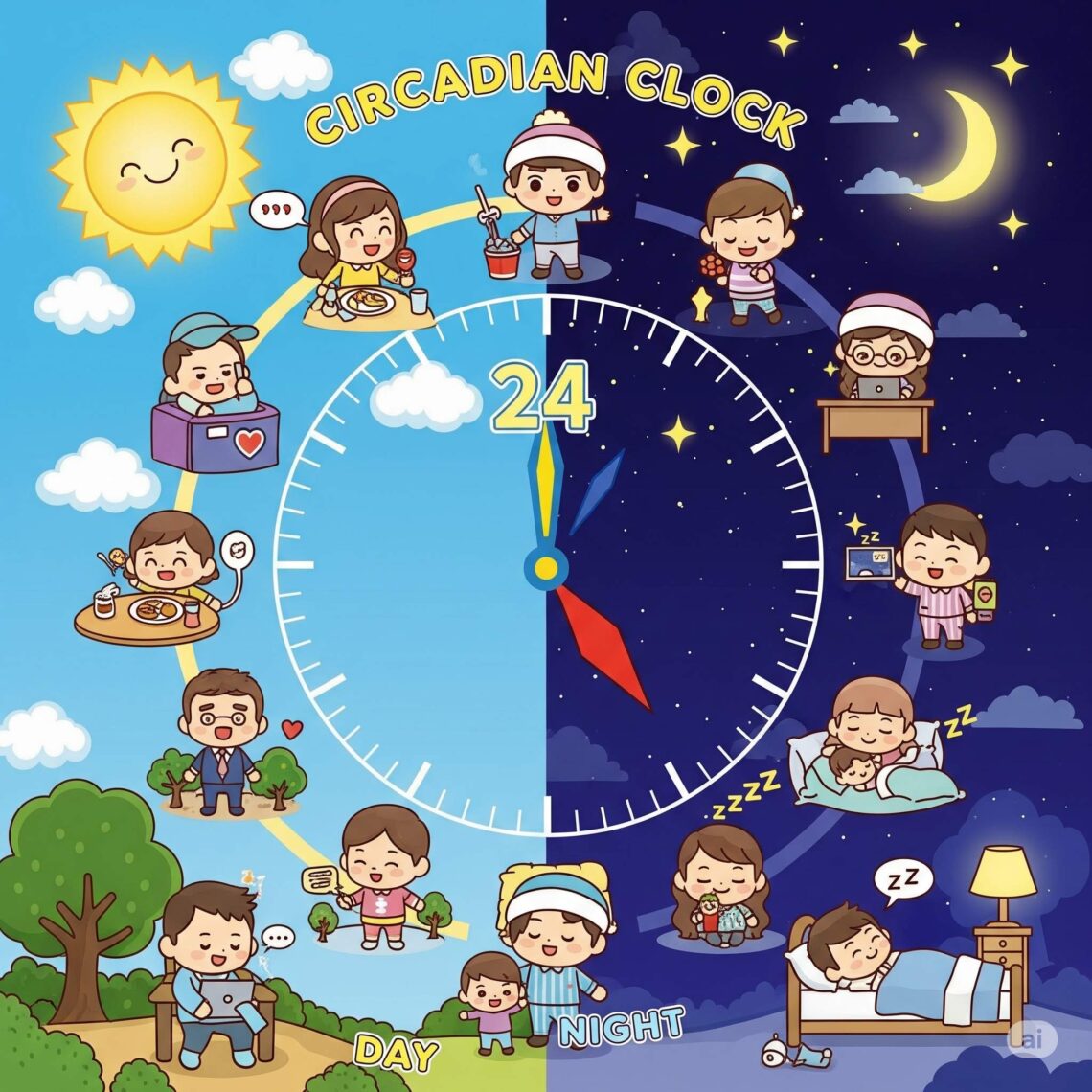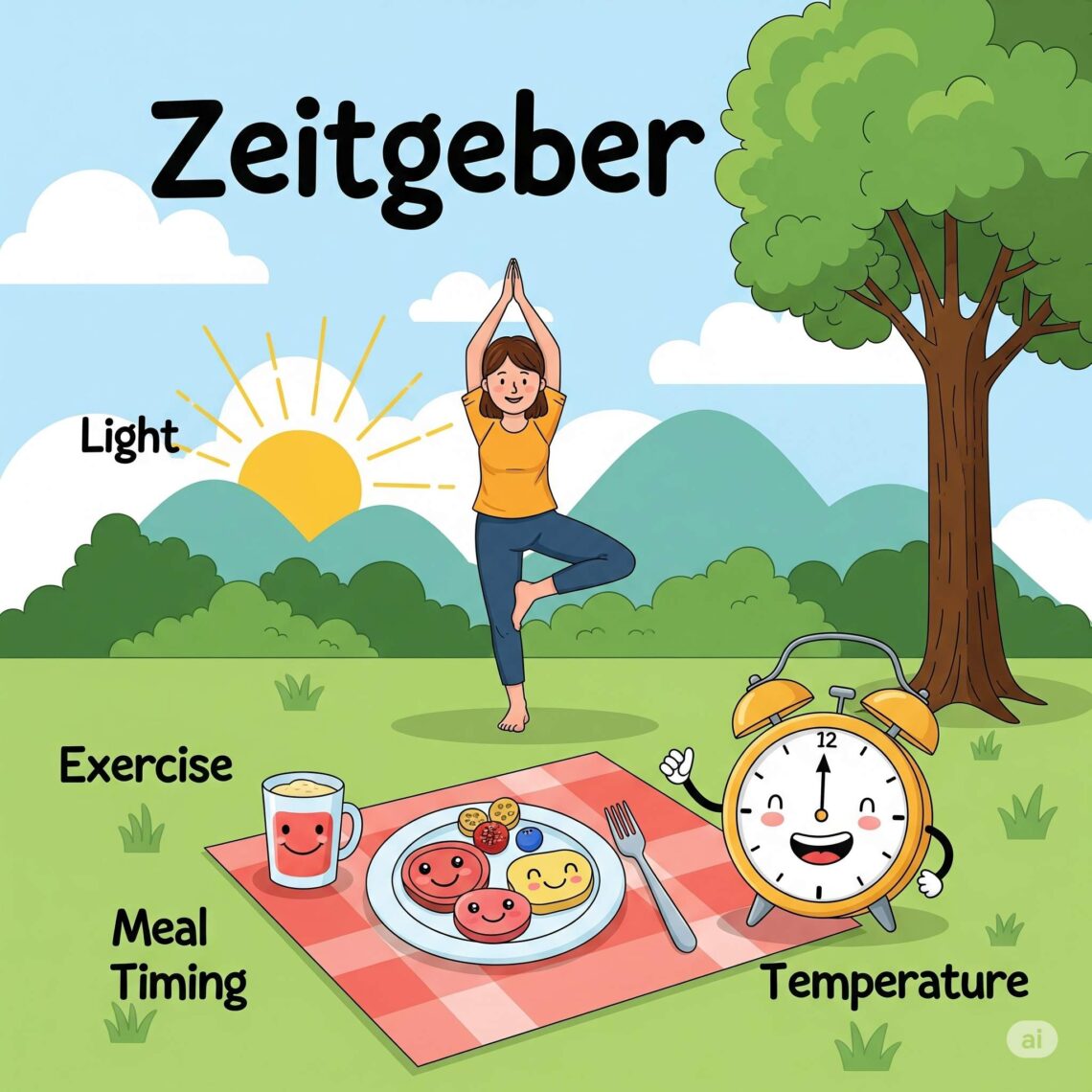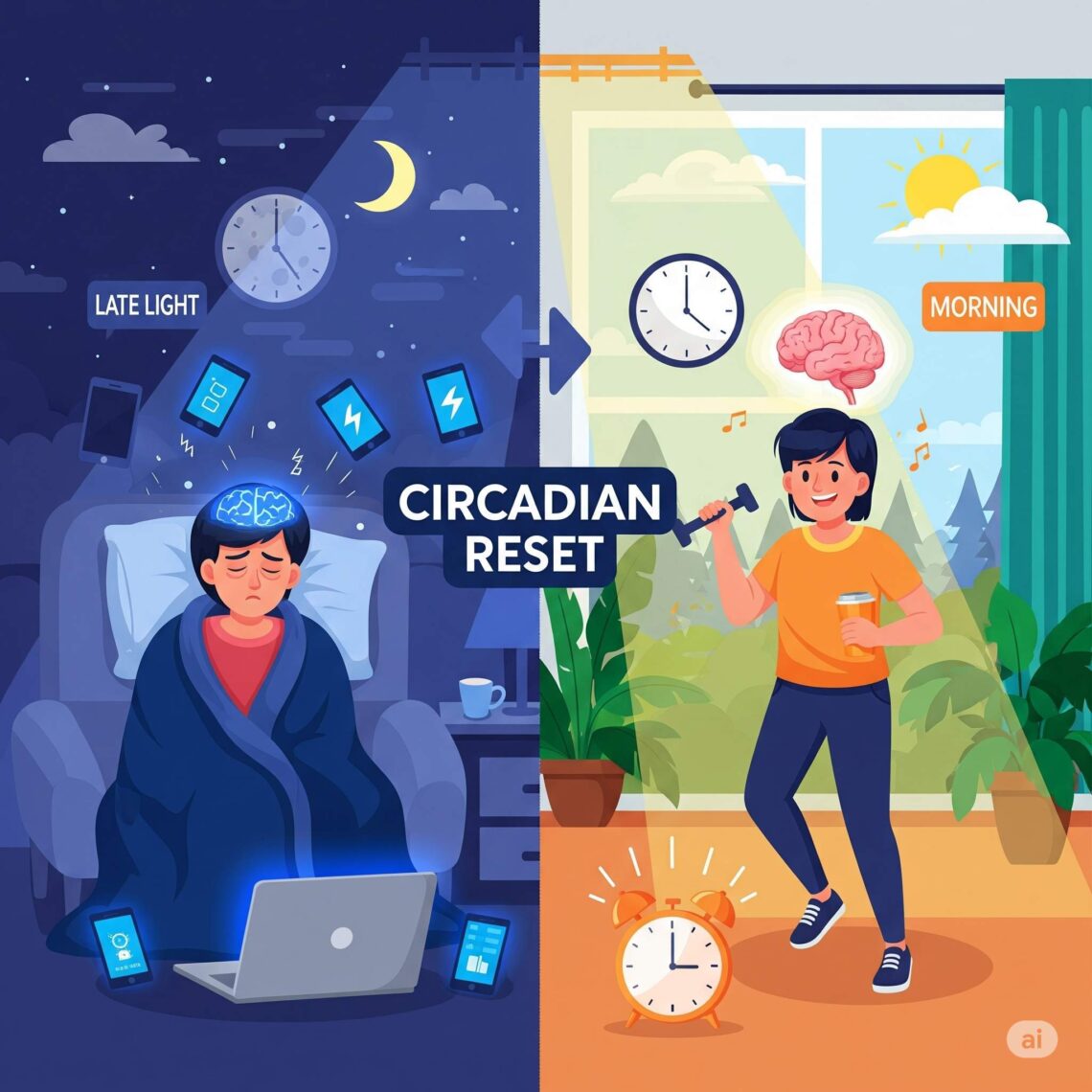The circadian clock, also known as the biological clock, is a vital internal timekeeping system that regulates nearly every process in the human body. From sleep cycles to hormone production, digestion, and even mental clarity, this 24-hour rhythm influences how we function on a daily basis. Understanding how the circadian clock works—and how to align with it—can dramatically improve your health, productivity, and well-being. The circadian rhythm is a natural, internal process that follows a roughly 24-hour cycle. This clock is governed by the suprachiasmatic nucleus (SCN) in the brain’s hypothalamus, which responds primarily to light and dark signals. When…
-
-
If you’ve ever struggled with poor sleep, low energy, or jet lag, you’ve likely experienced the effects of a misaligned body clock. A powerful concept in circadian biology called the zeitgeber—a German word meaning “time giver”—is central to fixing this. But what is a zeitgeber, and how can it help you reset your circadian rhythm for better health and productivity? In this article, we’ll break down the meaning of zeitgeber, how it influences your internal clock, and how to harness it to optimize your daily rhythm. What is a Zeitgeber? A zeitgeber is any external or environmental cue that helps…
-
In today’s fast-paced world, many people suffer from poor sleep, low energy, and daytime fatigue. One major cause? A misaligned internal clock. Fortunately, a circadian reset can help restore your body’s natural rhythm, improving sleep quality, mental clarity, and overall well-being. In this article, we’ll explore what a circadian reset is, why it matters, and how to do it effectively and naturally. What Is a Circadian Reset? A circadian reset refers to the process of realigning your body’s internal clock, known as the circadian rhythm, with the natural 24-hour day-night cycle. This biological rhythm regulates key functions like: When your…


